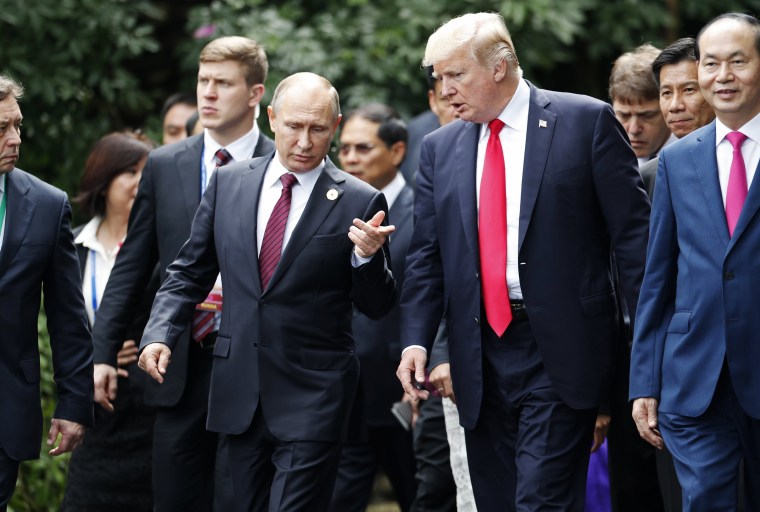Reporters asked Donald Trump last week whether his administration may soon recognize Crimea as part of Russia. The American president blamed Barack Obama for Vladimir Putin's aggression - as opposed to, say, Putin -- adding, "We'll have to see." It followed recent comments in which Trump emphasized all the money the Putin government has spent in Crimea, as if this might help justify Moscow's position.
On "Face the Nation" yesterday, CBS News' Margaret Brennan asked White House National Security Advisor John Bolton if the administration is prepared to endorse the idea that international borders can be redrawn by force. Bolton responded that this isn't the position of the United States, to which the host noted that the president made it sound like it could be.
It led to a rather striking exchange.
BOLTON: As I have said, the position of the United States is clear on this.BRENNAN: Right, but is that open to changing as the United States' position, if the president is saying the door is open?BOLTON: The president makes the policy. I don't make the policy.
I kept waiting for the White House national security advisor to say, "Don't blame me, I just work there."
Recognizing Crimea as Russian soil -- and blaming Obama for Russian aggression -- would certainly be a radical foreign policy step, but it's a step Trump, by his own admission, hasn't ruled out. Complicating matters is the fact that this is just one piece of a larger puzzle in which Trump keeps taking steps -- some substantive, some rhetorical -- that seem designed to make Putin's government happy.
These latest developments, for example, come against a backdrop in which Trump explored new ways to undermine the European Union, offering French President Emmanuel Macron financial enticements to abandon the E.U., while questioning the value of NATO, raising questions about the need for U.S. troops in Germany, and giving Russia new influence over conditions in Syria.
What do all of these moves have in common? They're very much in line with the Kremlin's wishes.
I'm reminded anew of something one of John Bolton's recent predecessors, Susan Rice, wrote in a New York Times op-ed: "There is no evidence that Mr. Putin is dictating American policy. But it's hard to imagine how he could do much better, even if he were."
This, of course, came after Trump announced his support for welcoming Russia back into the G-7, effectively rewarding Putin's government for its recent misdeeds.
Before Trump gave Putin a pass on Crimea, former Vice President Joe Biden responded to Trump's pro-Russia rhetoric on Friday by writing on Twitter, "Putin's Russia invaded its neighbors, violated our sovereignty by undermining elections, and attacks dissidents abroad. Yet our President wants to reward him with a seat at the table while alienating our closest democratic allies. It makes no sense."
Well, no, it doesn't, unless one considers the possibility that the American president has been compromised in some way by the foreign adversary that attacked the United States just two years ago.
The upcoming Trump-Putin summit gets underway in Helsinki on July 16, which is two weeks from today.
